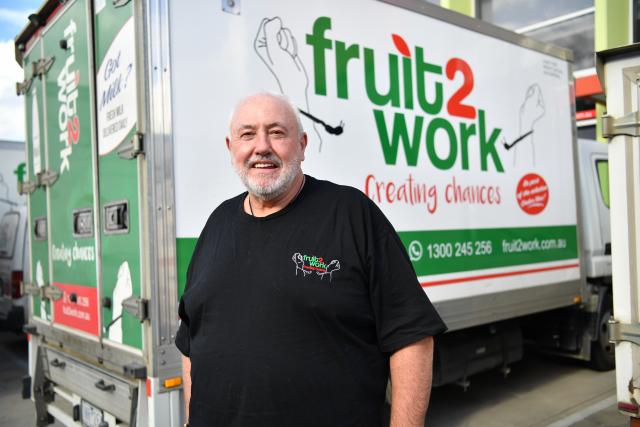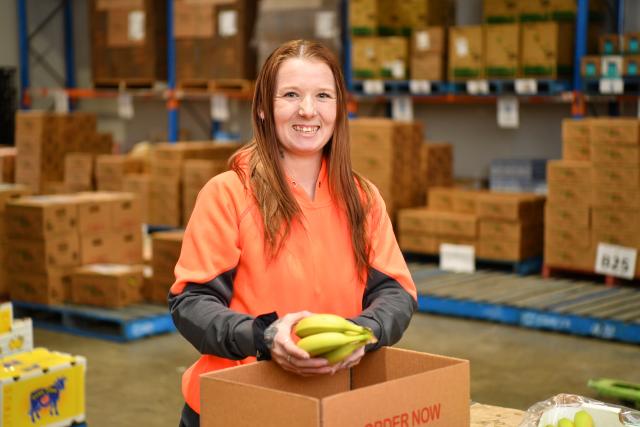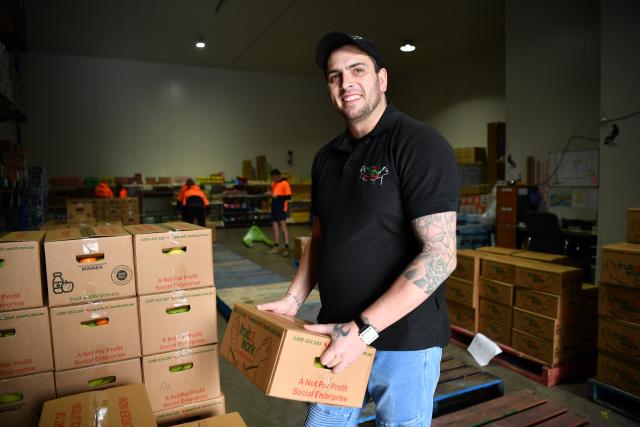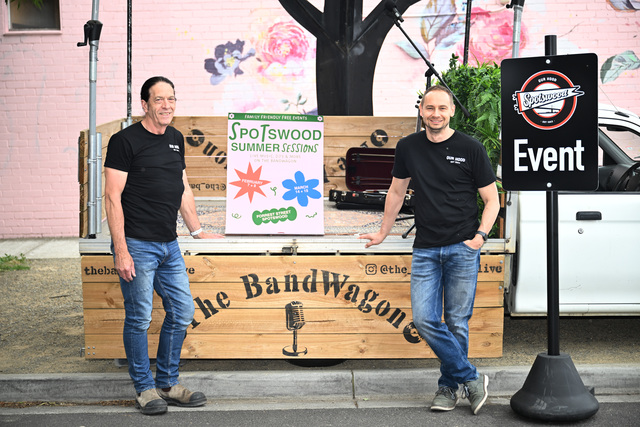Laverton North’s Fruit2Work is helping ex-prisoners to leave behind a life of crime and get their lives back on track by offering them work and friendship. Cade Lucas finds out how the social enterprise is helping to cut recidivism rates.
“The Jesuits said a long time ago when people leave prison there’s three things that stop them re-offending: a roof over their head, a friend and a job.”
Invoking Catholic teaching isn’t as fashionable these days as it used to be, but for Rob Brown, self-styled ‘chief chance creator’ at Laverton North social enterprise Fruit2Work, they had it right when it came to preventing recidivism among ex-prisoners.
And he should know.
Fruit2Work, which provides fruit, milk, tea, coffee and various other kitchen items to workplaces, employs people who’ve just been released from prison.
In its seven years of operation, not one Fruit2Work employee has gone back inside, something Mr Brown attributes to the Jesuit’s three steps, or at least some of them.
“Fruit2Work at least provides two legs of that stool,” Mr Brown said.
“One is a job and two is a friend because of the way we run the organisation.”
The effectiveness of the first two means the third usually follows anyway, especially as many Fruit2Work employees don’t just stay out of prison, but often thrive after getting a second – or as is regularly the case – third, fourth or fifth chance.
As an example, Mr Brown offers up Rick Young.
“Rick came to us straight from prison,” he said.
“In the last 12 years of his life he has not been off parole.
“He was probably cynical and thought we were blowing smoke and quickly realised this was a chance to change his life and now he’s operations manager.”
It’s quite the metamorphosis given Mr Young only arrived in September last year after finishing what he hoped would be his final stint in prison.
“I’d had enough of going to jail and the lifestyle,” said the 39-year-old.
“Had enough of drugs and prison.”
Since his first brush with the law at 14, Mr Young had seen plenty of both, spending 10 of the last 13 years in jail while also becoming a heroin addict, something that led to his final spell inside.
“I did three years for the last sentence. That was for an armed robbery.”
It was while completing that sentence in Fulham Prison that Mr Young was interviewed over Zoom for a job at Fruit2Work.
He was hired and had a job before even getting out.
“I started in the factory working two days because that’s all I could do physically and mentally and had parole requirements too.”
Allowing employees to juggle the conditions of their release is one of the ways Fruit2Work helps rehabilitate its employees, along with a structured process that tracks the progress of their health, skill development and offers advancement within the company or outside it.
For Mr Young, it’s resulted in him running the factory when the likes of Mr Brown and other bosses are away, while also interviewing prospective employees in prison, just like he was not so long ago.
“It’s a complete and utter different world for me now,” said the father of three who has also re-established his relationship with his wife and kids.
For his Fruit2Work colleague Natalie Caldwell, reconnecting with family went the other way around.
“I focussed on getting my kids back first and then house, car and car license and then started looking for work,” said the 28-year-old of her first priority following her release in March 2022.
Like Mr Young, the single mother of three’s problems began with drugs and then got worse.
“First time I went to jail was 2020 for drug offences, then in March 2021, I did 13 months for a home invasion.”
After regaining custody of her three boys soon after getting out, it was while meeting the conditions of her release that Ms Caldwell came across Fruit2Work.
“My case worker through drug court mentioned it and said to give them a call,” she said.
“It was a quick process. I got the call to come in for an interview on the Friday and was working on the Monday.”
That was just six weeks ago, more than a year after being released.
The effect has been dramatic.
“It’s been amazing. It’s just given me more of a life and structure for the kids,” said Ms Caldwell who blames a lack of direction and structure for her drifting towards drugs in the first place.
Mr Brown has certainly been impressed .
“She’s one of our high-potential employees who will end up leading a part of the business as we go,” he said of Ms Caldwell who is also hoping to study a certificate IV in drugs and alcohol.
Like Mr Young, Ms Caldwell’s transformation from crime to a career has been both quick and complete, testament to the Jesuit teaching invoked by their boss.
However it also raises uncomfortable questions about what authorities in Victoria and elsewhere, have been doing instead?
Rehabilitation has always been one of the stated goals of prison, but it’s one that corrections systems the world over have long failed to achieve.
According to the Productivity Commission’s Report on Government Services 2023, 51.1 per cent of prisoners released in Australia return to corrective services within two years, while in Victoria it’s 43.3 per cent.
While both results continue a downward trend, they’re hardly indicative of an effective rehab system.
“In my opinion, prison has almost zero rehabilitation.” said Rick Young, who argues it does the opposite.
“It keeps you on the merry-go round.”
He said it’s what happens upon release that matters.
“The first few weeks when you get out really shapes what’s going to happen in the future. So the quicker you get out and start using again, the quicker you’ll end up back in custody,” he said, adding that already having a job at Fruit2Work when was released was ‘massive’ in him not returning.
Difficulty regaining employment is a huge factor in recidivism, with prison sentences and criminal records not looking great on a resume.
Thankfully it’s not just organisations like Fruit2Work who are willing to give ex-inmates a chance.
Last year the state government launched the post-release employment opportunities programme which partners with businesses to create job openings for recently released prisoners. Dedicated VET programs, employment hubs based in prisons and extra support services have also been added after a parliamentary inquiry into the state’s criminal justice system found prisons were not reducing crime and recidivism was set to rise.
For Mr Young, whatever the support or opportunities on offer, rehabilitation must come from within.
“I think to fully change I had to be absolutely sick of the old life and give everything to changing. Twenty-five years of one way and changing to another, you can’t fake it.”










